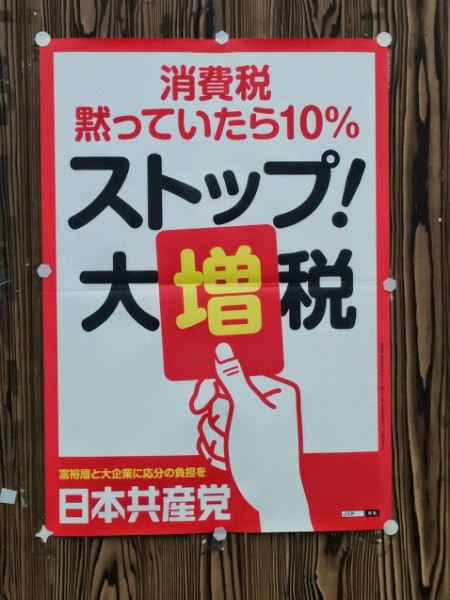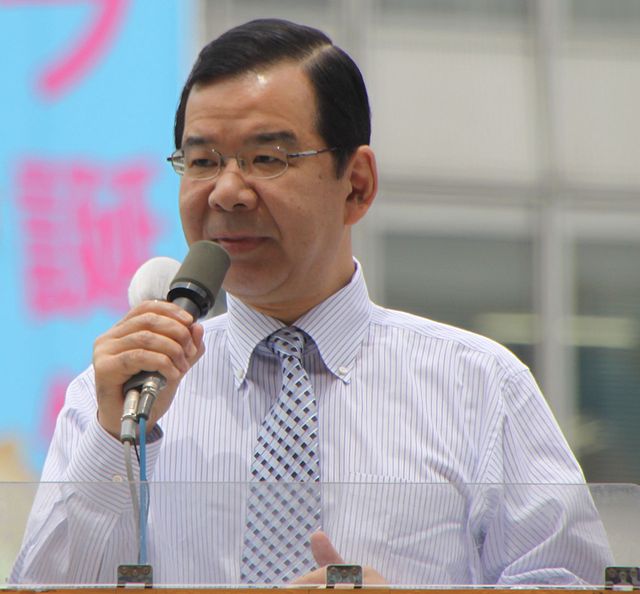A recent exchange in the Japanese Diet between Japanese Prime Minister Shinzo Abe and Japan Communist Party leader Kazuo Shii has raised eyebrows in Japan.
Does Abe's professed ignorance of the Potsdam Declaration indicate he rejects Japan's postwar tradition of pacifism?
The controversy was ignited during the May 20th parliamentary Question Period in the lower house of Japan's Diet, when the Japan Communist Party's Shii asked Abe if he accepts the Potsdam Declaration’s recognition that “Japan’s war was intended to conquer the world.”
The exchange in the Diet comes as Abe and Japan's ruling Liberal Democratic Party seek to change Japan's “Peace Constitution” to allow Japan to participate in military campaigns.
Some of Japan's neighbors and former adversaries in World War II, notably China and the two Koreas, are worried about these proposed changes, as are many Japanese citizens.
It's hard to say how much popular electoral support Abe has for his proposed changes to the Constitution. Just 52% of Japanese voters turned out for the December 2014 election that re-elected Shinzo Abe's Liberal Democratic Party and its coalition partner Komeito. Low voter turnout means Abe must speak to his base, which includes a rump of ultra-hardline neo-conservatives who wish to see the hated “America-imposed” Constitution revised or even completely replaced.
Abe and the LDP have also benefited from often incompetent opposition parties that are simply not attractive to voters.
Shii noted that in 2005, Abe, prior to becoming prime minister, had asserted the Potsdam Declaration was “rammed down Japan's throat.”

Japan Communist Party poster in rural Japan opposing a proposed hike to consumer tax (VAT). Image: Nevin Thompson
The Potsdam Declaration is a statement that called for the surrender of all Japanese armed forces during World War II.
It was signed on July 26, 1945 by United States President Harry Truman, British Prime Minister Winston Churchill and Chiang Kai-shek of China's ill-fated Nationalist government.
The Potsdam Declaration stated that, if Japan did not surrender unconditionally, it would face “prompt and utter destruction.”
On August 15, 1945, less than a month later, Japan accepted the terms of the Potsdam Declaration after the cities and Hiroshima and Nagasaki were obliterated by atomic bombs.
Besides threatening the destruction of a Japan that stubbornly refused to lay down its arms, the Potsdam Declaration also promised, in exchange for Japan's unconditional surrender, to prosecute war criminals, foster democracy in Japan and revive industry, “but not those which would enable her to re-arm for war”, as noted in Article 11 of the document.
The full Potsdam Declaration can be read here.
Back in the Diet, Abe responded:
ポツダム宣言は承知しておりません
Due to the vagueness of the language, even to Japanese speakers Abe's comment can be interpreted in several ways, just two of which are:
“Since I have not read the Potsdam Declaration in detail, I cannot answer at this time”, or “I am unfamiliar with the content of the Declaration.”
According to Shii, Abe essentially admitted to having never read the Potsdam Declaration.
Given the importance of the Potsdam Declaration to Japan's postwar development, including the adoption of the “Peace Constitution” that renounced war, this would be an outrageous statement for a Japanese prime minister to make.
Moreover most questions are likely submitted in advance of the Diet Question Period, so the Prime Minister's parliamentary staff should have been able to provide Abe with the text of the Potsdam Declaration.
Many Japanese were taken aback by the apparent revelation:
すごい会話。。”@product1954: ▶志位「日本の戦争は侵略戦争で誤りだったとポツダム宣言は指摘。総理は戦後政治の出発点の宣言を認めないのか?」 ▶安倍「私はポツダム宣言をつまびらかに読んでないので今ここで答えられません」 pic.twitter.com/VwpoMCuQ8C“
— 内田聖子/Shoko Uchida (@uchidashoko) May 20, 2015
[@uchidashoko] This is an incredible exchange:
Shii: The Potsdam Declaration states that Japan mistakenly embarked on a war of aggression. Can the Prime Minister confirm that this point is the very basis of Japan's postwar government?”
Abe: As I have never read the Potsdam Declaration in detail, I cannot provide an answer at this time.
Yet another interpretation of Abe's comment is: “I never agreed to the Potsdam Declaration.”
During the May 20th exchange, Shii also expresses doubts about what Abe is actually trying to say:
「つまびらかに読んでおらず、承知していない」と述べ、過去の日本の戦争を「間違った戦争」と認めなかったからです。
When you say “I have never read [the Potsdam Declaration] and are unfamiliar with it, you are also failing to confirm that in the past Japan mistakenly waged [a war of aggression].”
Some Twitter users are also skeptical of just how ignorant Abe is of the terms of the Potsdam Declaration:
@HyoSheenKim @uchidashoko @product1954 いやー…安倍くん、絶対に侵略戦争を認めたくないのは知っていましたが、まさか「ポツダム宣言をつまびらかに読んでない」と言い放つとは思いませんでした…。これは国内より国際的にヤバいかも。墓穴掘ったかも。
— アマノウズメ (@a_uzume) May 20, 2015
Geez, Abe-baby… While I have no idea whether or not you truly don't think Japan waged a war of aggression in World War II, I never thought you would ever actually say that you “have never read the Potsdam Declaration.” This goes beyond domestic politics and places Japan in an extremely dangerous position on the world stage. We are digging our own grave.
While holding a relatively small number of seats in the national Diet, the Japanese Communist Party has experienced increasing popularity in recent years, notably in Japan's recent regional elections in April 2015.
The April 2015 regional elections in Japan saw voters select city councilors, prefectural assembly members, and some governors. In the city assembly races, Shinzo Abe's Liberal Democratic Party took 301 seats, with its coalition partner Komeito winning 174 seats. The Japanese Communist Party (JCP) came in third with 136 city assembly seats, leaving the Democratic Party of Japan, which once headed the national government, trailing in fourth place with 126 seats.
JCP has consistently spoken out against proposed changes to the Constitution that would allow Japan to participate in armed conflicts on its own or as part of a military alliance.








2 comments